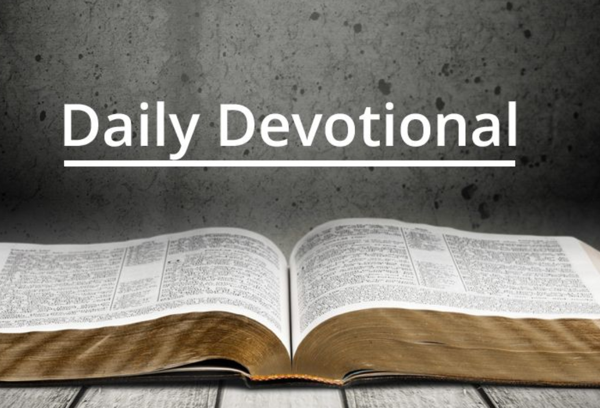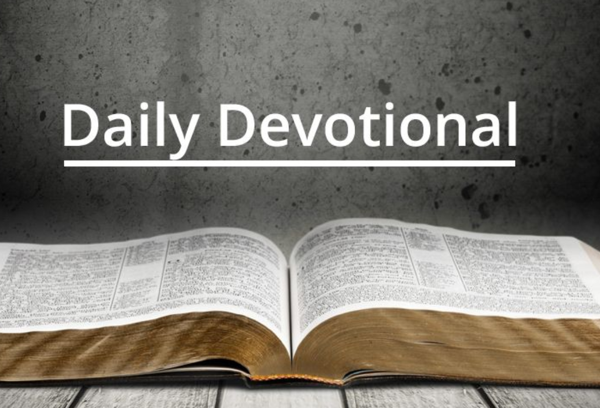
Craig Stowe served on a naval ship during World War II. As his vessel prepared for an attack, the commanding officer lined up the men. As usual, a volunteer was needed to ride out the battle in the crow’s nest and send pertinent information to the captain. No one stepped forward. Then, Stowe heard the Lord speak to his heart: I’ll be with you up there, as I am down here. The young man volunteered, and he endured without a single scratch. In fact, he reported that no harm even came near him.
Years later, Mr. Stowe told this story to his Sunday school class of teenage boys. The truth in that adventure made a profound difference to one of the students, who came from a difficult and chaotic home situation. He never forgot the life-changing message: “God is always with you no matter where you are.”
I was that young man. As I matured in my faith and studied Scripture, God confirmed what Mr. Stowe had taught me. I saw that Jesus stressed His abiding presence to His disciples. He knew how quickly a sense of rejection would settle in after the crucifixion. Moreover, potentially discouraging hardship awaited them as they carried the gospel to the rest of the world. So the Lord promised a Helper who would remain with Christians forever—the Holy Spirit.
Every day of a believer’s life is lived in the presence of Christ through His Holy Spirit. He comforts during hardship, encourages amidst difficulty, and strengthens in times of weakness. The benefits of a relationship with God are not postponed until heaven; we walk with Him now and always.

In today’s Christian culture, faith is often seen as a possession that affects just its owner. Because of our love for independence and self-sufficiency, we’ve in many ways lost the sense of community and outreach that the church is meant to embody. We live like little islands in our own “personal relationship with Christ,” but God wants our faith to influence others, both within and outside the church.
Elijah’s faith influenced the entire nation of Israel. By believing and delivering God’s message, he was an example to them in word and deed. When he asked the Lord to reveal Himself as almighty God, fire fell from heaven and the people believed.
The prophet’s motive in the showdown at Mount Carmel was to draw the people back to the Lord. We usually think of “sharing our faith” with those who don’t know Christ, but our confidence in God can also encourage weak or wayward believers. Likewise, those strong in faith can strengthen us when we are struggling with doubt.
The church is described as a body whose parts are all interconnected. (See 1 Cor. 12:12.) God never intended that we be autonomous, living in our own personal faith. We are not like a bag of marbles; rather, we’re to be like a bunch of grapes whose juices blend in times of pressure.
Guard against living an isolated Christian life. Share your confidence in God’s faithfulness. Your testimony could help others’ faith to grow. If you’re troubled by doubt or fear, let go of any pride or shame, and seek help from a strong believer. Mutual blessing awaits when we reach out to one another.

Imagine driving down a gravel road on a dark, rainy night. Even the light from your headlights seems to be swallowed by the blackness as you struggle to avoid veering off the road. Now consider what a difference it would make if there were yellow lines down the middle and white ones along the sides. You’d know exactly where on the road you’re supposed to be.
These two scenarios represent the difference between a life based on preferences and one guided by scriptural principles. Preferences fluctuate with the circumstances. When this is the basis for our decision making, the result is confusion, stress, and possibly danger as we wander through life. In contrast, principles are God’s unchanging truths, which keep us on the path of His will and protect us from spiritual danger and deception.
Daniel is an example of a young man who lived by principles. When he realized there was a line he couldn’t cross without disobeying the Lord, he stood fast and trusted God instead of conforming to the pagan world around him. Daniel chose not to eat food that had been sacrificed to Babylonian idols, and he left the consequences of his obedience to the Lord.
There are two main reasons we sometimes rely on preference-based decision making: Either we want to fit in, or we want to avoid the negative consequences that could come as a result of obeying the Lord. Yet to go this route will leave us in darkness, swerving dangerously through life. Safety and security can be found only in obedience to God’s principles, which are like bright white lines on the road keeping us in the center of His will.

Many years ago, while I was on a photography trip, the heavenly Father taught me a valuable lesson about leading and following. My party had been hiking on a trail for three or four hours when I felt a slight sensation of dread. I had a sneaking suspicion that we were traveling the wrong way. When I asked our guide about it, he calmly reassured me that we were, in fact, heading in the right direction.
Well, that quieted me for a few minutes, but this persistent sense of being off track simply would not go away. So I pulled out my compass and discovered that, sure enough, we were heading the wrong way. When I pointed this out to our guide a second time, he finally stopped to think about it. After examining the compass, map, and trail markers, he realized that we really were off course. We lost about three hours—and some beautiful photo opportunities—because our guide wasn’t leading us correctly.
That experience taught me how vitally important it is to trust in the person who is guiding us. Beyond the hiking trail, this holds true in business, church, families, or any other relationship. If our guide isn’t trustworthy—if we cannot put our complete faith in him or her—we’ll end up lost.
So let me ask you: Who is your guide? Are you following celebrities or news reporters? Are you trusting in politicians or business leaders? If you’ve placed your absolute faith in anyone or anything other than your heavenly Father, you’re already off course. He is our one trustworthy Guide. Seek Him and get back on track today.

Israel’s enemies were clever in their efforts to block the temple’s reconstruction. First, they offered to help. What better way to cause things to go wrong than to get involved in the work? When their aid was rejected, they set out to discourage the workers and make them afraid. The opponents even hired counselors to thwart the Israelites and were successful in hindering the project.
God, however, wanted His people to reject self-reliance and instead carry out His work in dependence upon the Holy Spirit. He offered them encouragement and protected their building project despite the mountain of opposition facing them. Sometimes this means He will remove the problem; at other times He walks us through it. In either case, we are to rely steadily on God’s Holy Spirit. Doing so will allow us to:
•Patiently love our spouse when there is turmoil in the home.
•Wisely guide our children toward godliness in our self-centered culture.
•Follow scriptural principles about giving, saving, and spending in a society that urges us to get what we want now.
•Experience contentment and God’s peace in our current circumstances—single or married, employed or out of a job, healthy or sick.
•Do God’s work His way.
Being led by the Spirit characterizes how we work. While that mindset is countercultural and not pleasing to the flesh (Gal. 5:16), it’s the only way to live as a child of God. Seek out believers who are trying to practice dependence on the Spirit, and encourage one another not to give up

